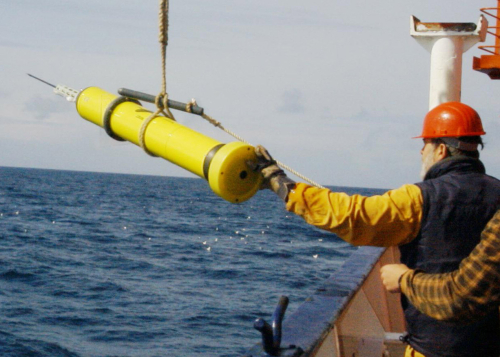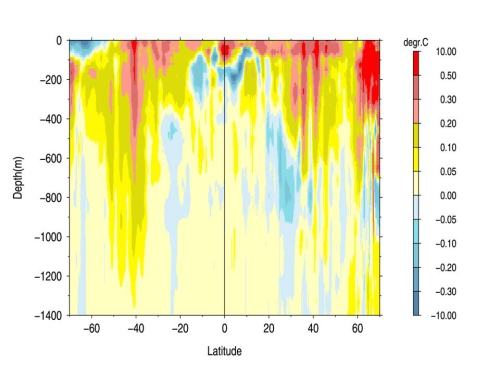The global ocean represents the most important component of the Earth climate system. The oceans accumulate heat energy and transport heat from the tropics to higher latitudes, responding very slowly to changes in the atmosphere. Digital gridded climatologies of the global ocean provide helpful background information for many oceanographic, geochemical and biological applications. Because both the global ocean and the observational basis are changing, periodic updates of ocean climatologies are needed, which is in line with the World Meteorological Organization’s recommendations to provide decadal updates of atmospheric climatologies.
"Constructing ocean climatologies consists of several steps, including data quality control, adjustments for instrumental biases, and filling the data gaps by means of a suitable interpolation method", says Professor Viktor GOURETSKI of the University of Hamburg. Prof. GOURETSKI is a scholarship holder of the Chinese Academy of Sciences’ President’s International Fellowship Initiative (PIFI) at the Institute of Atmospheric Physics, Chinese Academy of Sciences, and the author of a report recently published in Atmospheric and Oceanic Science Letters.

Deployment of an APEX float from a German research ship. (Source: http://www.argo.ucsd.edu/pictures.html)
"Sea water is essentially a two-component system, with a nonlinear dependency of density on temperature and salinity, with the mixing in the ocean interior taking place predominantly along isopycnal surfaces. Therefore, interpolation of oceanic parameters should be performed on isopycnals rather than on isobaric levels, to minimize production of artificial water masses. The differences between these two methods of data interpolation are most pronounced in the high-gradient regions like the Gulf Stream, Kuroshio, and Antarctic Circumpolar Current," continues Professor GOURETSKI.
In his recent report, Professor GOURETSKI presents a new World Ocean Circulation Experiment/ARGO Global Hydrographic Climatology (WAGHC), with temperature and salinity averaged on local isopycnal surfaces. Based on high-quality ship-board data and temperature and salinity profiles from ARGO floats, the new climatology has a monthly resolution and is available on a 1/4° latitude–longitude grid.

Warming of the global ocean between 1984 and 2009, as seen on the zonally averaged section of the temperature difference between the WAGHC and WOA13 global ocean climatologies. (Image by Viktor GOURETSKI)
"We have compared the WAGHC climatology with NOAA’s WOA13 gridded climatology. These climatologies represent alternative digital products, but the WAGHC has benefited from the addition of new ARGO float data and hydrographic data from the North Polar regions", says Professor GOURETSKI. "The two climatologies characterize mean ocean states that are 25 years apart, and the zonally averaged section of the WAGHC-minus-WOA13 temperature difference clearly shows the ocean warming signal, with a mean temperature increase of 0.05°C for the upper 1500-m layer since 1984".
Citation: Viktor GOURETSKI (2019) A new global ocean hydrographic climatology, Atmospheric and Oceanic Science Letters, DOI: 10.1080/16742834.2019.1588066. https://www.tandfonline.com/doi/full/10.1080/16742834.2019.1588066
Media contact: Ms. LIN Zheng, jennylin@mail.iap.ac.cn
